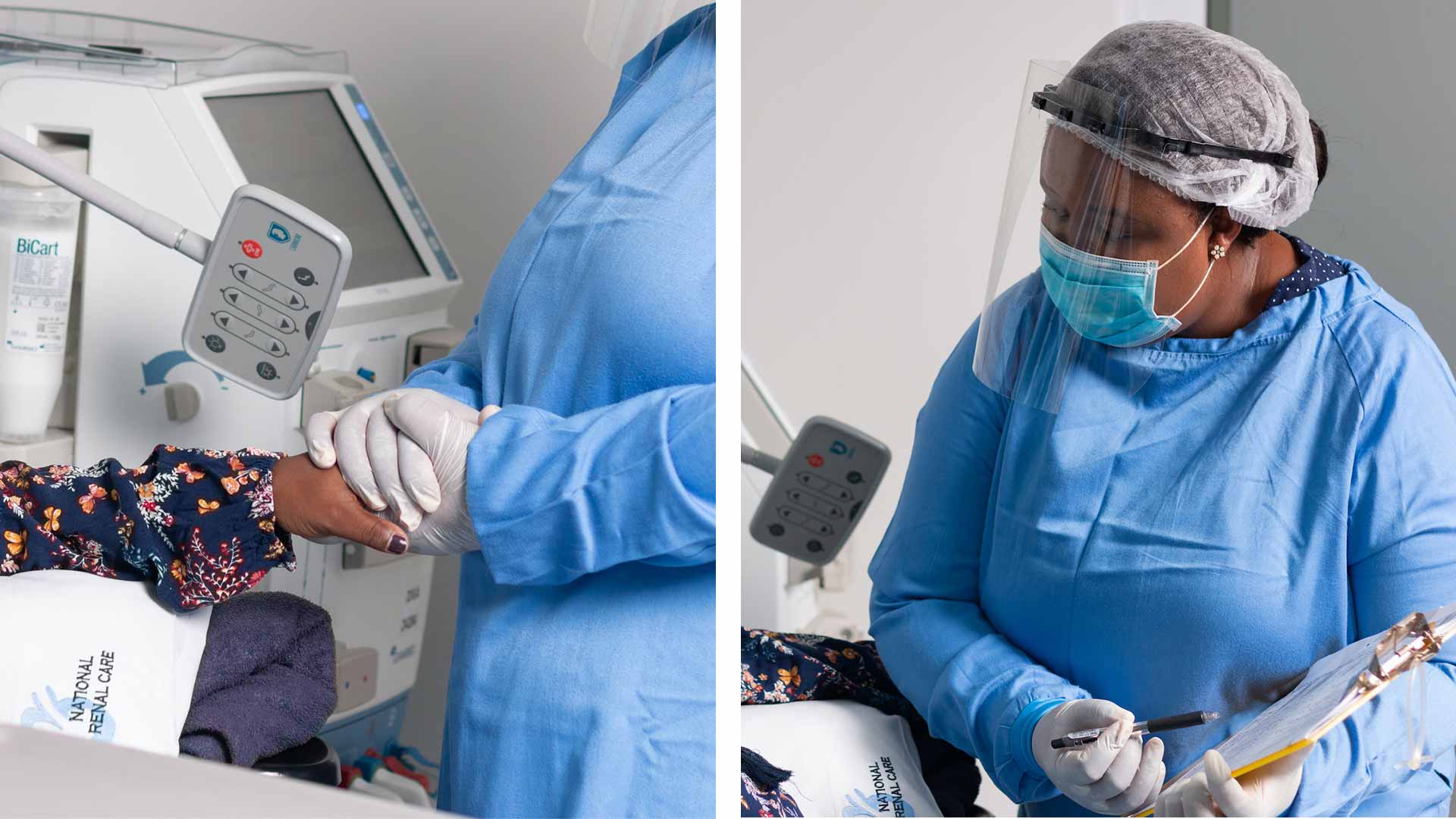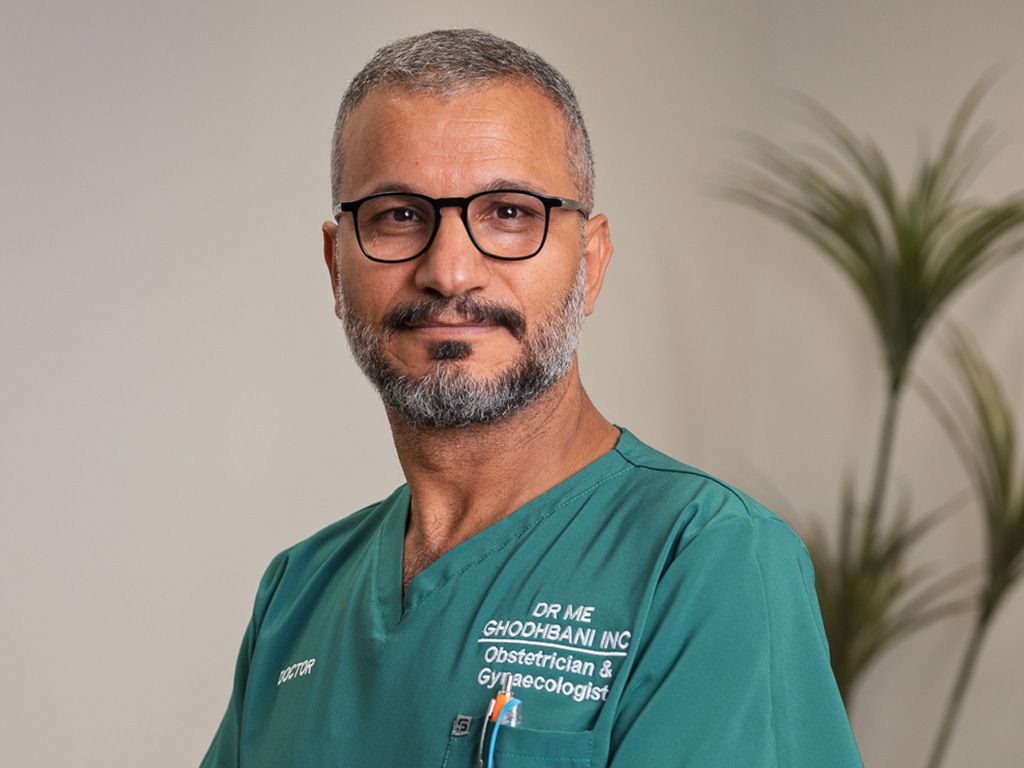Kidney disease can strike at any age
April 15, 2021
Unit leader of National Renal Care Queenstown, Sr Chumani Mbixane, says that people with kidney failure usually need dialysis treatment three times a week for four hours at a time. “We get to know our patients quite well, and we care for each one individually with empathy. NRC Queenstown is still providing dialysis for some of the same patients since our unit opened some 20 years ago,” she says.
Dialysis and ongoing caring support can sustain quality of life for many years
Most people take their kidney health as a given, however kidney failure leaves people reliant on renal dialysis for survival, unless a kidney transplant can be performed. Fortunately, it is now possible for people with end-stage kidney disease to live well for many years with the aid of dialysis and by adopting a healthy lifestyle.
“Many people mistakenly believe that kidney disease is only a problem in older people, however the reality is it can affect individuals at any age,” says Sr Chumani Mbixane, the unit leader of National Renal Care (NRC)
Queenstown in Komani in the Eastern Cape.
“Kidney function can often be preserved if the problem is detected before it progresses to end-stage kidney disease and is appropriately managed. For many people there may be no noticeable symptoms at first, therefore regular general practitioner examinations and kidney function tests are recommended,” she says.
“People with high blood pressure and/or diabetes may be at particular risk for developing kidney disease, as are those with family members with kidney disease [hereditary kidney disease], and should make a point of discussing their kidney health regularly with their doctor.”
NRC units nationwide, including NRC Queenstown, support renal patients by providing haemodialysis, and continuous health education suited to each individual’s condition and circumstances. Haemodialysis is a life-saving procedure for people with impaired kidney function or kidney failure. A dialysis machine filters the person’s blood and artificially purifies it as a substitute for the detoxification function usually performed by healthy kidneys. Peritoneal dialysis is another form of dialysis available, involving fluid exchange via a membrane in the patient’s abdomen.
National Renal Care records patients’ progress and outcomes on an ongoing basis as part of benchmarking to ensure quality care that is data driven is provided to patients. These include self-reported health and well-being assessments, which assists the NRC team to focus on the outcomes that matter most for a patient. In 2020, more than 70% of NRC patients nationally reported they felt physically well within expected parameters, although they remain reliant on dialysis. A resounding 89.8% reported good mental wellness, which is integral to overall wellbeing.
“We also have the Health Start programme, which is unique to NRC, where people with early kidney disease are provided with the information they need to preserve their remaining kidney function. When detected early enough, this may even prevent their kidneys from deteriorating and the person may be able to avoid the need for dialysis, or delay it by years,” she explains.
“Individuals with kidney failure usually need dialysis treatment three times a week for four hours at a time. We therefore get to know our patients quite well, and we care for each one individually with empathy,” Sr Mbixane says.
The Queenstown unit, which originally opened in August 2001 with only two haemodialysis machines, has had to relocate several times to larger premises in order to accommodate the needs of its growing patient base. The comfortable, modern facility now has 21 dialysis stations and capacity to dialyse 84 patients per week. Sr Mbixane adds that NRC Queenstown is still providing dialysis for some of the same patients since the unit opened some 20 years ago.
“With the expert guidance of a renal specialist, known as a nephrologist, and following the guidelines for maintaining a healthy lifestyle we provide as part of our service at NRC, it is possible for renal patients to not only survive but enjoy quality of life for decades with end stage kidney disease,” Sr Mbixane concludes.
Advice for keeping your kidneys healthy
Many kidney diseases can be prevented with the following tips from National Renal Care:
- Quit smoking: Smokers are three times more likely to have reduced kidney function.
- Limit alcohol consumption: This can help prevent heart disease and high blood pressure, which both increase the risk of kidney disease.
- Eat a balanced, nutritious diet and maintain a healthy weight: This also helps to prevent diabetes and high blood pressure, major risk factors for kidney disease.
- Drink enough water: Six to eight glasses per day this will help your kidneys flush out harmful toxins.
- Exercise regularly
- Regularly check your kidney health with your general practitioner
- Only take medicines and supplements with your doctor’s approval













